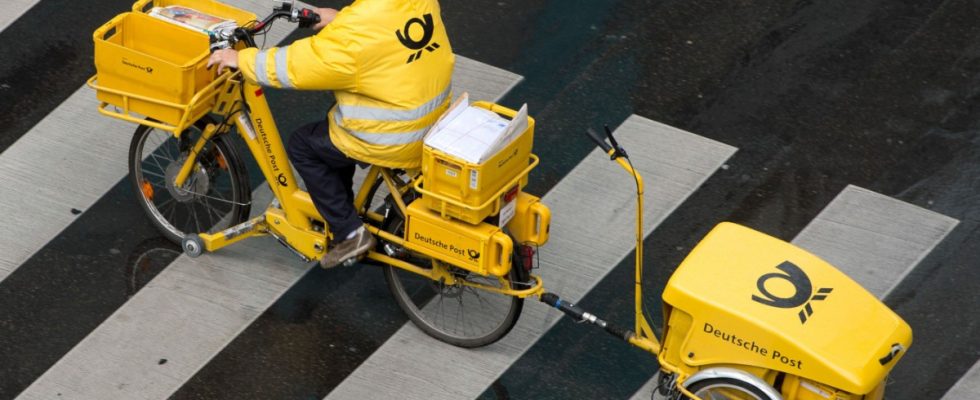Many letters are delivered more slowly from January onwards. The federal government is currently changing the postal law and wants to relieve the burden on Deutsche Post. So far, the legal act stipulates that 80 percent of letters must be delivered on the next working day. This will no longer apply in the future. Instead, 95 percent of letters must reach the recipient on the third day and 99 percent on the fourth day after they are posted. On Wednesday, the responsible manager, Nikola Hagleitner, said the company plans to switch to the more leisurely system on January 1, 2025.
Hagleitner is responsible for the German letter and parcel business on the board of the postal parent company DHL Group. DHL, the world’s largest logistics company with almost 600,000 employees, presented its poor annual results in Bonn. Because of the poor economic situation Sales fell by 13 percent to 82 billion euros, profit by almost a third to 3.7 billion euros.
The traffic light government wants to give the post office more time because the volume of letters is shrinking. Citizens can do more and more on the Internet and by email, which is why the number of letters fell by more than five percent last year. The trend has accelerated; previously the decline was only between two and three percent. The costs for the delivery network are therefore spread over fewer and fewer letters. The more relaxed rules are intended to help reduce these expenses. In addition, the post office can then forego transporting letters by plane at night – this is harmful to the climate.
Another argument is that nowadays people usually send really urgent messages via email anyway. For those letters that absolutely have to arrive the next day, the post office could introduce premium stamps, the purchase of which guarantees quick delivery. Such two-class models exist, for example, in Great Britain, Austria and Switzerland.
The reform is “a clear victory” for DHL
Management consultant Rico Back, former head of the parcel service GLS and the British Royal Mail, calls this planned change to the postal law “a clear victory” for DHL. “This saves the group 250 to 300 million euros a year,” he said South German newspaper.
Ironically, the next postage increase may be in January 2025. The DAX company had even requested that this increase be brought forward to the beginning of 2024 due to increased energy and personnel costs, but the Federal Network Agency rejected this. During the last increase two years ago, the price of the domestic standard letter rose from 80 to 85 cents.
For the global logistics company DHL, the German mail business is of course not that important; it delivers less than eight of the 82 billion euros in sales. The global logistics market is now in motion because Deutsche Bahn wants to sell its subsidiary Schenker. However, DHL CEO Tobias Meyer said his group was not interested in a takeover. But Schenker is “a pretty child who will find someone else.”

